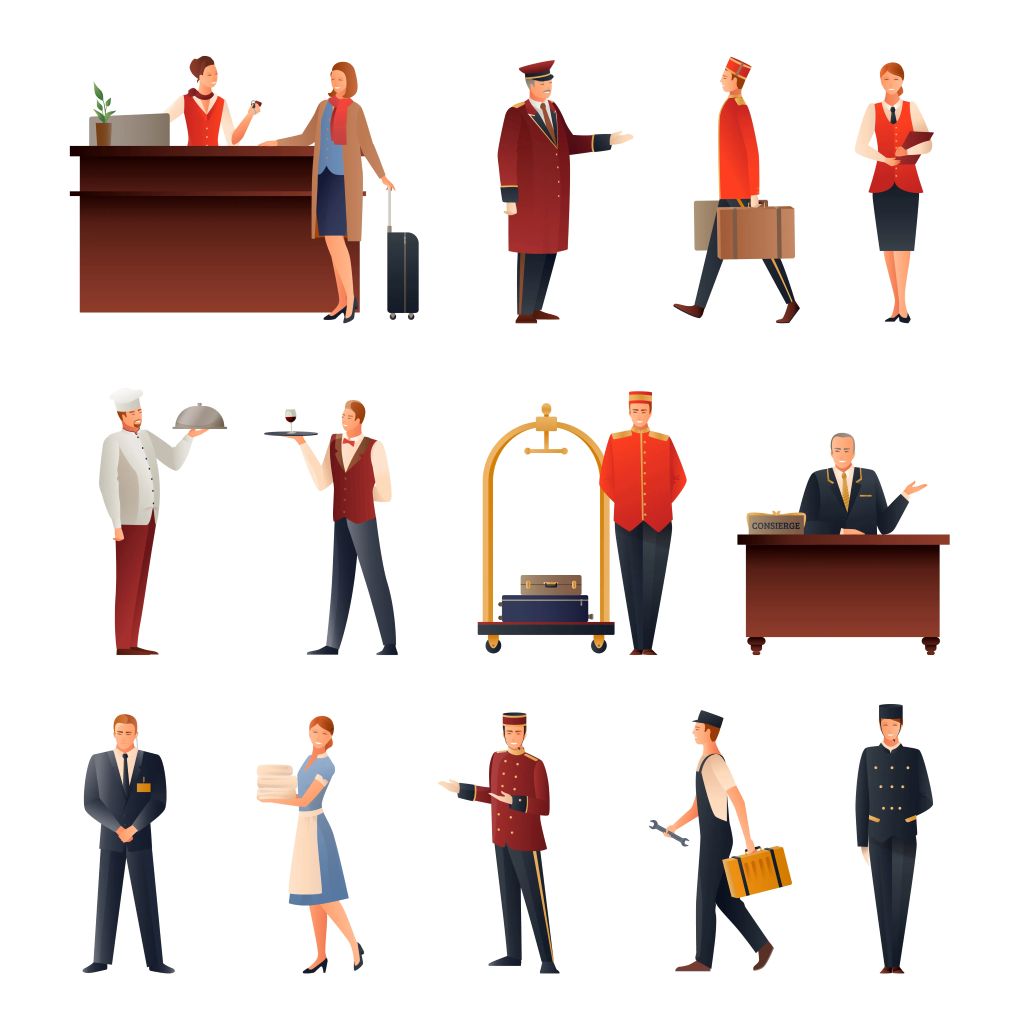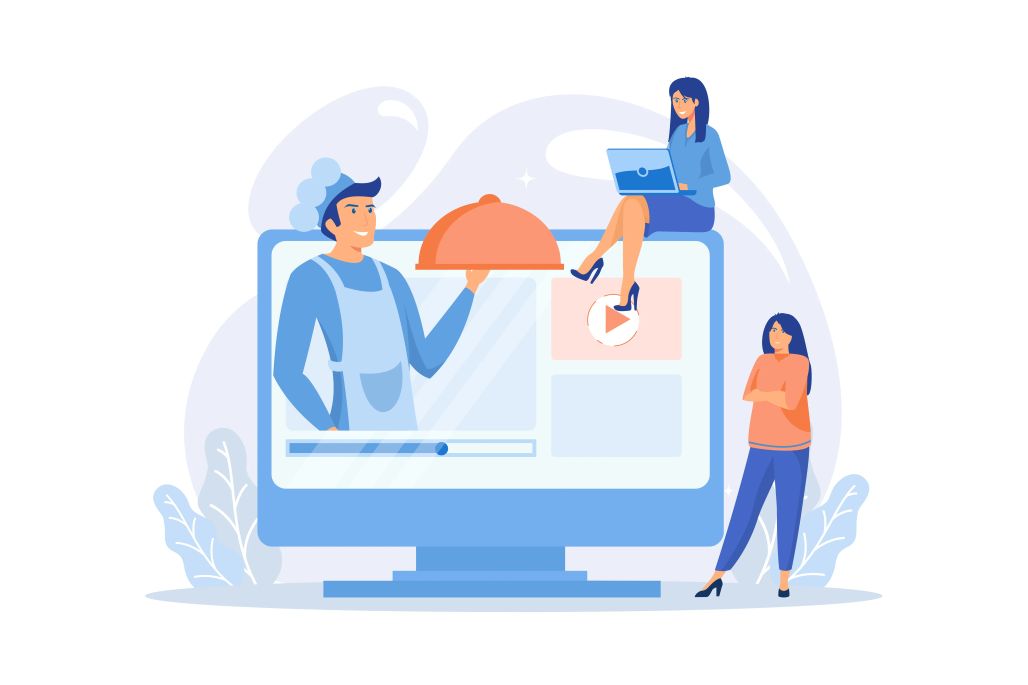In the hospitality industry, every guest interaction matters. From the first warm greeting at the front desk to the final farewell at check-out, staff behavior defines a guest’s overall impression. And what ensures consistency across these touchpoints? Effective hospitality training.
Managing hospitality isn’t just about operational efficiency—it’s about building experiences that delight guests, drive loyalty, and strengthen a brand’s reputation. That’s why hotels, resorts, and restaurants worldwide invest heavily in hospitality industry training programs that equip staff with the right skills. With modern platforms like Calibr Learn, organizations now have access to AI-powered personalized learning that transforms training into a growth driver rather than a checklist.
If you’re looking to empower your workforce with guest service training ideas and scalable, personalized learning, explore Calibr Learn’s AI-powered platform or contact us today for more details

Why Staff Training is the Heart of Hospitality
The hospitality sector thrives on one principle: service excellence. Unlike products, hospitality services can’t be stored, replaced, or resold. A single negative guest interaction can undo dozens of positive ones.
That’s where hospitality customer service training becomes essential. Staff must be trained not only in technical tasks but also in empathy, communication, and cultural awareness. Whether it’s hotel front desk training to handle high-stress check-ins or luxury hospitality training to meet elite guest expectations, the right approach ensures staff consistently exceed guest standards.
Types of Hospitality Training Programs
Different roles in hospitality demand different training approaches. The best hospitality training combines technical expertise, soft skills, and cultural sensitivity—all of which contribute to a seamless guest experience. A well-structured program ensures employees not only know what to do but also how to do it with confidence and warmth.
Hospitality Industry Training: This covers the foundation of compliance, workplace safety, and operational efficiency. Employees learn about food safety standards, health regulations, and emergency protocols, ensuring the hotel or resort operates smoothly and legally.
Hospitality Customer Service Training: At the heart of hospitality is service. This training builds empathy, communication, and problem-solving skills. It helps staff handle difficult guests, anticipate needs, and turn challenges into opportunities for creating memorable experiences.
Hotel Communication Skills Training: Clear communication is essential in every interaction—from explaining policies at the front desk to responding to guest requests in the restaurant. This training emphasizes professional tone, active listening, and multilingual skills where needed.
Luxury Hospitality Training: For properties catering to high-net-worth guests, service must go beyond standard expectations. This training is tailored for VIP needs, teaching discretion, cultural etiquette, and the art of delivering highly personalized experiences.
Hotel Front Desk Training: The front desk is the heartbeat of any hotel. This role-specific training covers check-in and check-out procedures, billing accuracy, reservation handling, and guest complaint resolution. It prepares staff to remain calm and efficient during peak hours.
Guest Relations Training: Building long-term loyalty requires more than just one good stay. This training equips teams to personalize interactions, handle follow-ups, and strengthen guest relationships—turning first-time visitors into repeat customers.
With platforms like Calibr Learn, hotels can design personalized learning paths that fit each role, ensuring staff members receive the training most relevant to their responsibilities. By blending microlearning, real-time analytics, and mobile access, Calibr makes training not only more effective but also more engaging for employees.
Ready to elevate your staff’s capabilities? Discover how Calibr’s training programs for hospitality can streamline guest service and operations.
Training Across Guest Touchpoints
Hospitality training isn’t limited to orientation or compliance checklists. To truly elevate guest experiences, training must extend across the entire customer journey. From the very first greeting at check-in to the final farewell at check-out, staff behavior and service quality shape perceptions. Every touchpoint becomes an opportunity to delight—or disappoint. That’s why structured hospitality industry training programs are critical for consistency and excellence.

1. The First Impression: Check-in
The front desk is the face of the hotel, and it sets the emotional tone for the guest’s stay. A rushed, indifferent welcome can leave guests feeling undervalued, while a warm greeting immediately builds trust and comfort.
That’s why hotel communication skills training is essential. Staff must learn to balance efficiency with empathy—mastering tone of voice, body language, and problem-solving strategies. Even small gestures, such as remembering a guest’s name or offering assistance with luggage, can create lasting positive impressions.
Platforms such as Calibr Learn provide microlearning modules that break these skills into quick, digestible lessons, ensuring employees can apply them in real time. Role-based modules prepare front desk teams for different scenarios—whether it’s managing a line of tired travelers, handling unexpected complaints, or accommodating special requests.
Fact: Guests are 80% more likely to return to a hotel when they have a positive check-in experience (HospitalityNet).
2. In-Stay Experience: Guest Interactions
Once a guest is settled in, their overall experience is defined by daily touchpoints—housekeeping interactions, room service encounters, or quick questions at the concierge desk. These moments may seem small, but collectively, they form the bulk of a guest’s impression.
Here, guest relations training and guest service training play a vital role. Employees must be equipped to:
Anticipate guest needs before being asked.
Offer proactive support, such as suggesting local activities or restaurant options.
Deliver consistent, friendly service across departments.
For instance, a server who remembers a guest’s food preference from the first night and proactively offers alternatives demonstrates the power of hospitality customer service training. It shows attentiveness, personalization, and care.
This is where tools like Calibr Craft become game-changers. Hotels can design engaging training content modeled after real-world situations—like how to handle VIP guests, how to respond to complaints diplomatically, or how to personalize service at scale.
Data: 77% of travelers say personalized experiences increase their loyalty to a hotel brand (McKinsey)
3. Check-out and Post-Stay Engagement
While many hotels focus heavily on arrivals, the check-out process is just as influential. Guests often decide whether they’ll return—or recommend the property—based on how their departure is handled.
Hospitality manager training needs frequently emphasize the importance of check-out etiquette. Staff should:
Ensure bills are accurate and explained clearly.
Resolve any final concerns on the spot.
Offer a genuine, personalized farewell.
Equally important is what happens after the guest leaves. Hotel management training helps staff understand the value of thoughtful follow-ups—like sending personalized thank-you emails, loyalty offers, or post-stay feedback surveys. This not only extends the guest relationship but also provides valuable insights to improve services.
With tools such as Calibr Content Hub, managers can centralize check-out best practices and customer engagement resources. Teams gain access to updated scripts, checklists, and even real-time feedback training modules, ensuring consistency across all properties.
In short, training across guest touchpoints transforms routine transactions into meaningful experiences. By equipping staff with the right skills at every stage, hotels create seamless journeys that leave guests not just satisfied—but loyal.
Challenges in Managing Hospitality Training
Even though training is critical, many organizations struggle with implementation. Key challenges include:
High Turnover Rates: The hospitality industry sees annual turnover rates of 70%+ in some regions (U.S. Bureau of Labor Statistics, 2024). This means training must be fast, scalable, and repeatable.
Diverse Workforce Needs: Teams often include multilingual, multicultural staff. Platforms with multi-language support, like Calibr Learn, help overcome these barriers.
Keeping Content Updated: From new safety protocols to evolving guest expectations, training content must be regularly refreshed.
Consistency Across Locations: For global brands, centralized resources like Calibr Content Hub ensure standards are maintained across geographies.
The Future of Hospitality Training
As guest expectations evolve, training for hospitality will increasingly leverage digital tools, gamification, and AI-driven personalization. The goal is no longer just to train employees but to engage, motivate, and retain them in a highly competitive industry.
AI-Powered Course Authoring accelerates training content creation, helping managers design customized modules in minutes instead of weeks.
Gamification boosts engagement with points, badges, and leaderboards, making learning fun and encouraging healthy competition.
Mobile Learning allows staff to learn on the go, perfect for shift-based industries where employees may not have desk access.
Real-time Analytics provide managers with insights into skill gaps and ROI, enabling smarter workforce planning.
Beyond this, future hospitality training programs will also integrate virtual and augmented reality simulations—allowing staff to practice guest interactions, safety drills, or luxury service standards in realistic, risk-free environments. Personalized learning paths will ensure every employee, from front desk to management, receives content tailored to their unique role and career growth.
The shift toward digital-first learning also empowers global hotel chains to deliver consistent training across multiple locations while accommodating cultural differences and multiple languages. This combination of innovation ensures that training not only enhances operational efficiency but also strengthens guest loyalty.
By combining these advancements, hotels can build the best hospitality training programs—ones that don’t just train employees but inspire them to consistently deliver memorable guest experiences.
Insight: By 2025, 86% of hospitality companies will increase investment in digital training solutions (Deloitte, 2024).
Conclusion: Training as a Guest Experience Strategy
From the very first hello to the final goodbye, hospitality training programs shape every interaction. When staff feel prepared, confident, and supported, guests feel valued, respected, and eager to return.
Investing in hospitality training isn’t an expense—it’s a growth strategy. Well-structured training for hospitality improves guest satisfaction, reduces staff turnover, and strengthens brand reputation. From guest service training to hotel management training, each module contributes to building a culture of service excellence.
And with platforms like Calibr, hotels can seamlessly blend employee onboarding, compliance training, and hospitality customer service training into a unified, scalable system that drives both staff performance and guest loyalty.
Want to turn every guest interaction into a memorable experience? Learn how Calibr empowers hospitality teams to deliver excellence at every touchpoint by signing up for a 14-day free trail or contact us and schedule a demo to get started


